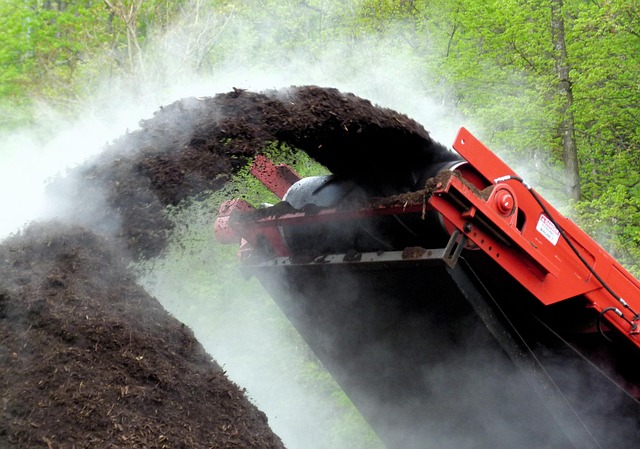Using Compost Manure Effectively

Compost manure is one of the most effective and sustainable ways to enrich the soil, improve plant health, and boost agricultural productivity. Derived from decomposed organic matter such as kitchen scraps, crop residues, and animal dung, compost manure acts as a natural soil conditioner that provides essential nutrients to plants. Unlike chemical fertilizers, it not only nourishes crops but also enhances soil structure, water retention, and microbial activity, ensuring long-term fertility. Farmers and gardeners increasingly prefer compost manure because it promotes healthy plant growth without causing harmful environmental impacts.
When applied correctly, compost manure improves soil aeration, helps roots absorb nutrients efficiently, and encourages earthworms and beneficial microorganisms to thrive. It is particularly beneficial for sandy soils that need moisture retention and clay soils that require loosening for better root penetration. Whether used for vegetables, fruits, ornamental plants, or large-scale crops, compost manure offers balanced nutrition that supports strong stems, lush foliage, and higher yields.
However, the effectiveness of compost manure depends largely on proper application. Overuse can lead to nutrient imbalances, while underuse may not deliver the desired results. Timing, placement, and quantity are key factors to consider. Applying well-decomposed compost manure at the right growth stage can significantly reduce the need for chemical fertilizers, making farming more cost-effective and eco-friendlier. Additionally, it enhances the soil’s carbon content, contributing to sustainable farming practices and improved crop resilience.
In this guide, we’ll explore step-by-step methods on how to apply compost manure effectively, ensuring maximum benefits for both the soil and the plants. By understanding the right techniques, farmers, home gardeners, and horticulturists can unlock the full potential of this natural fertilizer and promote a healthier, more productive ecosystem.
Understanding the Right Time to Apply Compost Manure
The timing of compost manure application plays a vital role in how well plants can absorb its nutrients. The best time to apply compost manure is before planting or at the early growth stage of crops. Applying it at least 2–3 weeks before sowing or transplanting allows the nutrients to mix well with the soil and creates a fertile bed for seedlings. For perennial plants and trees, applying compost manure at the beginning of the growing season ensures consistent nourishment throughout their growth cycle.
Preparing the Soil for Compost Application
Before applying compost manure, it’s important to prepare the soil properly. Start by removing weeds and breaking up clods to ensure even distribution. Loosen the top layer of soil with a rake or hoe so that the compost can blend smoothly. If the soil is dry, light watering before application helps the compost settle in better. A well-prepared seedbed ensures improved microbial activity and faster nutrient absorption, setting the stage for healthy root development.
Methods of Applying Compost Manure
- Broadcasting Method
This is one of the simplest and most common methods. Compost manure is evenly spread over the entire surface and then lightly incorporated into the soil. It works well for vegetable beds, lawns, and field crops.
- Basal Application
In this method, compost manure is applied directly into planting holes or furrows before sowing or transplanting. It ensures that nutrients are available close to the roots from the very beginning.
- Top Dressing
Top dressing involves applying compost manure around the base of growing plants. This is especially effective for fruiting and flowering plants, as it provides an extra nutrient boost during their active growth phase.
- Compost Tea
Compost can also be used in liquid form as compost tea. This nutrient-rich solution is applied through watering, allowing for quick nutrient uptake by plant roots and foliage.
Quantity and Frequency of Application
The amount of compost manure depends on the type of crop and soil condition. Generally, 2–3 kg per square meter is sufficient for vegetable beds, while a few handfuls per plant work well for potted plants. For best results, apply compost manure once or twice during the growing season. Avoid over-application, as excessive organic matter can lead to nutrient leaching or imbalance.
Final Tips for Effective Use
- Use well-decomposed compost to prevent diseases and pests.
- Incorporate compost into the topsoil for better results.
- Keep the compost layer a few inches away from stems to avoid rotting.
- Regularly monitor soil health and moisture levels to optimize its benefits.
By following these simple yet effective steps, compost manure can transform ordinary soil into a nutrient-rich foundation for thriving, sustainable crops.
Conclusion
In conclusion, applying compost manure effectively is a simple yet powerful way to enhance soil fertility, improve plant health, and support sustainable farming. When added at the right time and in the proper amount, compost manure enriches the soil with essential nutrients, boosts microbial activity, and improves water retention. It nurtures strong root development, leading to healthier plants and higher yields without the negative impacts of chemical fertilizers.
Whether used through broadcasting, basal application, top dressing, or compost tea, the key lies in balanced and timely application. By integrating compost manure into regular farming and gardening practices, growers can build long-term soil health, reduce input costs, and promote eco-friendly cultivation. This natural fertilizer not only strengthens the foundation of your crops but also contributes to a greener, more sustainable future for agriculture.
Boost Your Soil’s Power Naturally with Premium Compost Manure!
Enhance your crop yield, improve soil structure, and embrace sustainable farming practices with high-quality compost manure that delivers lasting results. Whether you’re a professional farmer or a passionate home gardener, the right compost can make a world of difference to your harvest.
- 100% organic & eco-friendly
- Improves soil fertility & water retention
- Supports healthier, stronger plant growth
- Reduces dependency on chemical fertilizers
📞 Call Now: +91 9830 720311 / 83369-77770
🌐 Visit: https://indochemagrovet.in/
🏢 Mumbai Address:
Parewala House No.4, Vakola, Santacruz (East), Mumbai 400055
🏢 Kolkata Address:
Block – DD, House no-197, 1st Floor, Street no-295,
Action Area-1, New Town, Kolkata, West Bengal 700156

